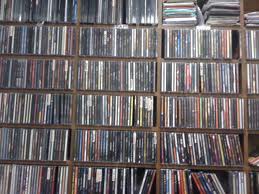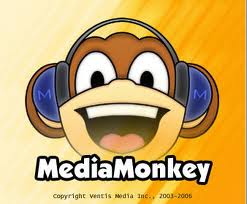On Portability – Systems Part 2: Why I don’t much like Apple
 This is the second in a series of posts about portable systems – focusing mainly on Android technology. As I mentioned in the prior post, that begs the question of ‘why not Apple (or IOS)’? So in this post, I will list the reasons I prefer not to use their stuff (if I don’t have to). Of course this is purely a personal view – you neither have to do as I say, or even believe me. But it’s based on my many years of experience, which turned me from an Apple enthusiast to an Apple avoider.
This is the second in a series of posts about portable systems – focusing mainly on Android technology. As I mentioned in the prior post, that begs the question of ‘why not Apple (or IOS)’? So in this post, I will list the reasons I prefer not to use their stuff (if I don’t have to). Of course this is purely a personal view – you neither have to do as I say, or even believe me. But it’s based on my many years of experience, which turned me from an Apple enthusiast to an Apple avoider.
 Now before I do all that, let me point out the obvious. Steve Jobs is as close to a genius as a businessman is ever likely to get. And in three categories: the mp3 music player, the smart phone, and the tablet, Apple defined the market, set the current standards, and improved usability for millions of people. However, Mussolini made the trains run on time, and the Romans built a lot of great roads. I wouldn’t have wanted to be an Italian or a Silurian then despite the benefits in some areas because both environments were more than somewhat controlling. And the same goes for me and Apple.
Now before I do all that, let me point out the obvious. Steve Jobs is as close to a genius as a businessman is ever likely to get. And in three categories: the mp3 music player, the smart phone, and the tablet, Apple defined the market, set the current standards, and improved usability for millions of people. However, Mussolini made the trains run on time, and the Romans built a lot of great roads. I wouldn’t have wanted to be an Italian or a Silurian then despite the benefits in some areas because both environments were more than somewhat controlling. And the same goes for me and Apple.
It’s worth noting that Apple did not invent any of these markets. There were many very effective mp3 payers before the iPod, a vibrant smartphone market before the iPhone, and many, many attempts at tablets before the iPad. They just did it better, and prettier, with superb (and controlling) business models and marketing.
 I have bought lots of iPods over the years (now into double figures), up to and including the iPod Touch 3 & 4 (aka iPhone lite), and an iPad2. In my view, the ‘classic’ iPod (with a hard disk) is probably the purest, and the best of all Apple’s renaissance products. In fact, unlike the iPod touch, the iPod Classic has the brilliant capability of being able to select genres and shuffle albums. Hardly any current or past mp3 player or media device can do this – even the current iPhone-based iPods don’t do it. This capability is useful if you like albums in any music category but if you listen to classical music it is essential. I tag my music collection (now about 115GB of which maybe 40GB is classical) carefully by composer, and genre (chamber, chamber sonatas, choral, opera, orchestral), artist, soloist, conductor etc. Each individual piece (sonata, concerto etc) is tagged as an album, as opposed to the all the contents of a mixed classical CD being tagged as an album. As a result, I can select ‘orchestral’ for example, and play whole symphonies randomly by composer all day. Or randomly play whole pieces by Bach for days on end (this can lead to madness). Without album shuffle, you can only play single movements randomly, or play one whole CD and then have to select another one.
I have bought lots of iPods over the years (now into double figures), up to and including the iPod Touch 3 & 4 (aka iPhone lite), and an iPad2. In my view, the ‘classic’ iPod (with a hard disk) is probably the purest, and the best of all Apple’s renaissance products. In fact, unlike the iPod touch, the iPod Classic has the brilliant capability of being able to select genres and shuffle albums. Hardly any current or past mp3 player or media device can do this – even the current iPhone-based iPods don’t do it. This capability is useful if you like albums in any music category but if you listen to classical music it is essential. I tag my music collection (now about 115GB of which maybe 40GB is classical) carefully by composer, and genre (chamber, chamber sonatas, choral, opera, orchestral), artist, soloist, conductor etc. Each individual piece (sonata, concerto etc) is tagged as an album, as opposed to the all the contents of a mixed classical CD being tagged as an album. As a result, I can select ‘orchestral’ for example, and play whole symphonies randomly by composer all day. Or randomly play whole pieces by Bach for days on end (this can lead to madness). Without album shuffle, you can only play single movements randomly, or play one whole CD and then have to select another one.
 It was this that led me to my first problem with Apple. Apple ignores that you may have other music devices, and deliberately makes it difficult for you to accommodate them. Years ago I bought my first network-connected AV amplifier (the massive and still pretty cool Denon AVR4306). It could call music off my music server, but when I did that, I noticed that the labels for the music were not coming up on the TV the same as on the iPod. It took me months to find out why – the reason was and is that Apple creates its own private database for the tags that label MP3 tracks. I had laboriously retagged the inaccurate Apple track labels for composer, artist, title of the piece etc – at that point maybe 15,000 of them. Now I found that all the data was locked inside Apple’s proprietary iTunes database, and was not available to any non-Apple device. I had to retag every track again so the data was visible to non-Apple devices, and at that point stopped using iTunes unless I had to (which was more often than I liked). I found over the intervening years that there were many other objectionable things about iTunes and the way Apple works. So here’s my list of the things I dislike most about them.
It was this that led me to my first problem with Apple. Apple ignores that you may have other music devices, and deliberately makes it difficult for you to accommodate them. Years ago I bought my first network-connected AV amplifier (the massive and still pretty cool Denon AVR4306). It could call music off my music server, but when I did that, I noticed that the labels for the music were not coming up on the TV the same as on the iPod. It took me months to find out why – the reason was and is that Apple creates its own private database for the tags that label MP3 tracks. I had laboriously retagged the inaccurate Apple track labels for composer, artist, title of the piece etc – at that point maybe 15,000 of them. Now I found that all the data was locked inside Apple’s proprietary iTunes database, and was not available to any non-Apple device. I had to retag every track again so the data was visible to non-Apple devices, and at that point stopped using iTunes unless I had to (which was more often than I liked). I found over the intervening years that there were many other objectionable things about iTunes and the way Apple works. So here’s my list of the things I dislike most about them.
Itunes
1. Proprietary track tagging as above
2. Syncing can only be one-way from a PC to an iPod. Syncing a loaded iPod to a new PC wipes out all the music on the iPod.
3. ITunes requires registration of specific devices to specific computers – possibly OK in the early days of DRM, but not in the DRM-free mp3 era.
4. Accessing the iTunes store even for free items requires registration, provision of credit card details, and agreement to a pretty obnoxious set of Ts and Cs (have a read of them – they are very restrictive).
5. It is a very inefficiently written 80MB + piece of code, slow to download, snail-like to install, and sluggish in operation
6. Every new release of some irrelevant piece of Apple kit you don’t own requires a new version of iTunes. This results in the download of the whole code set again – they still do not use patches.
7. It is impossible to install iTunes without installing their dreadful and slow media player Quicktime, and they also try to slip in Safari also. The full set runs to over 100MB.
Other Apple stuff
1. All Apple devices pre-req iTunes for activation, for music, photo and video transfer, and for system software updates. See above.
2. Flash. Banning Flash from all Apple platforms is all about platform control for Apple, at the expense of inconvenience and loss of function for the user
3. By and large all Apple products are closed off and proprietary systems: often to the detriment of the user. What do I mean by this? Best to wait for the next post for the detail, but for example, Apple provides no means of accessing the file system in iPad, or even of downloading and then accessing files. That a problem? Well would you want to have no file manager access in Windows?
 To replace iTunes, I moved to MediaMonkey several years ago. And to replace the iPhone and iPad, I recently moved to Android. I expected the fit and finish and general usability of these systems to be worse than Apple. But for Android tablets I was surprised, and you might be too in the next post.
To replace iTunes, I moved to MediaMonkey several years ago. And to replace the iPhone and iPad, I recently moved to Android. I expected the fit and finish and general usability of these systems to be worse than Apple. But for Android tablets I was surprised, and you might be too in the next post.
- On Portability – Systems Part 1: Breakthroughs
- On Portability – Systems Part 2: Why I don’t much like Apple
- On Portability – Systems Part 3: the Asus Transformer:hardware
- On Portability – Systems Part 4: Android software (part a)
- On Portability – Systems Part 5: Android keyboards
- On Portability – Systems Part 6: Transformer keyboard
- On Portability – Systems Part 7: Android software (part b)
- On Portability – Systems Part 8: Android and Transformer security and round-up

